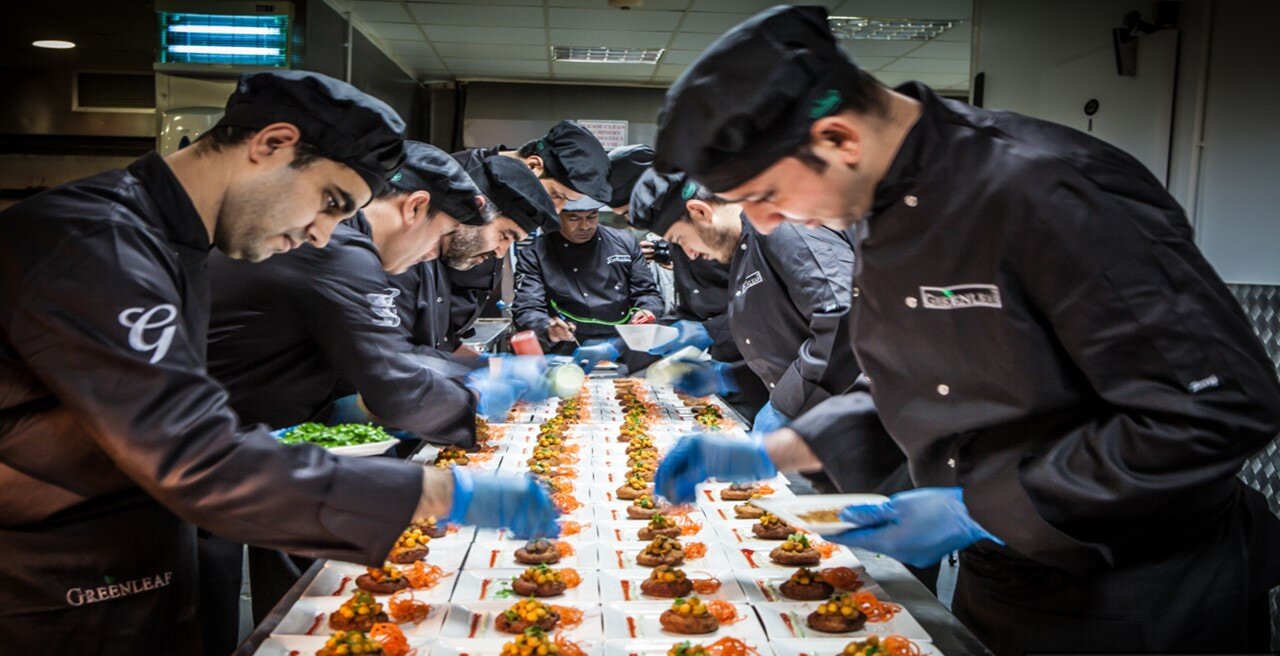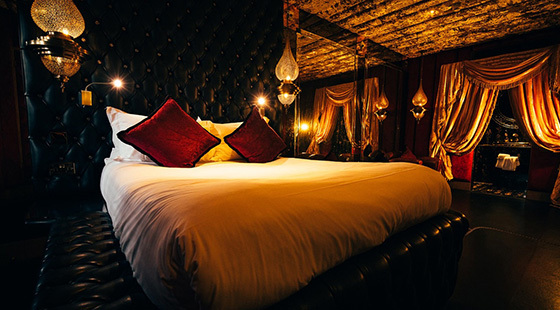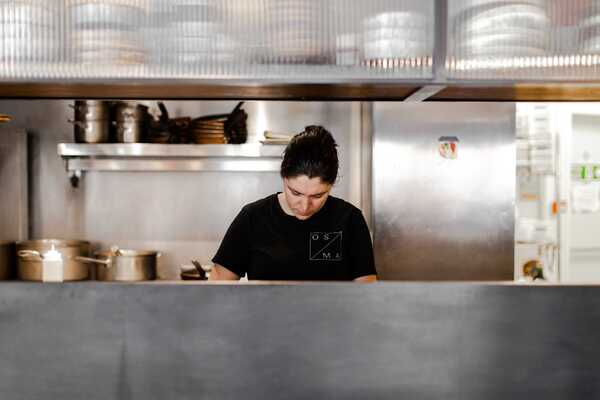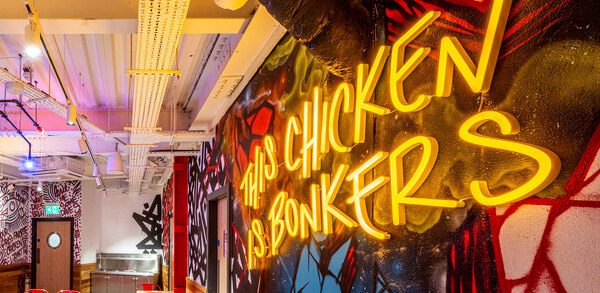Falling through the cracks: event and contract caterers on the lack of government support
Event and contract catering businesses have been hit hard by the effects of the pandemic. Ben Walker speaks to those operators who have been denied business rates relief and a clear reopening roadmap.
It’s official. Hospitality has experienced the biggest decline of all sectors of the economy since the outbreak of the pandemic. A House of Commons Briefing Paper published this March reported that economic output in hospitality dropped 90% in April 2020 compared to February 2020. It recovered during the summer but still remained below pre-pandemic levels, before declining again as Covid-19 cases rose and restrictions resumed in November.
In response, the UK government’s support for businesses has been among the most generous in the world, according to research by Columbia University economics professor Ceyhun Elgin.
In addition to furlough and loans, there has been specific financial help for hospitality such as the Eat Out to Help Out scheme, the Retail, Hospitality and Leisure Grant Fund (RHLGF, now closed) and the cut in VAT from 20% to 5% until September 2021.
But concerns remain that individual councils have been reluctant or slow to award grants. Some areas of the industry have missed out more than others. Event and contract caterers in particular have fallen through the cracks. This seems doubly unjust considering that event caterers have been among the very hardest hit by Covid-19.
Part of the industry?
Confusion has led some council officials to question whether event catering is part of the hospitality industry. The House of Commons Briefing Paper did little to help the cause of clarity when it stated: “Other industries such as the wedding industry and events industry overlap considerably with hospitality services but are difficult to define in official statistics. There is no separate or tailored support for sectors such as the events or the wedding industry.”
In fact, event catering is clearly included in the government’s own Standard Industry Classifications under ‘Accommodation and Food Service Activities’, which is the official definition of the hospitality industry.
Sammir Saroya is director of Greenleaf Catering & Event Management, a 42-year-old family business specialising in catering for Asian weddings with 30 full-time employees and annual sales of £2.9m.
He said he had “eight months of battling with Ealing Council” just to get a holiday from his £3,800-a-month business rates.
“The council said: ‘You’re linked to hospitality but you’re not part of hospitality. You’re not on a high street and you don’t have proof that people come to you to book.’ So I said: ‘If you were booking your wedding, would you do it all online?’, he explains. “I had to send them pictures of our showroom and offices to make sure that the council understood that this is a premises that people have to go to in order to book.”

In the end, he says the council “reluctantly” provided rates relief and backdated it. Saroya also got a local restrictions grant, which provides £4,000 a month. However his landlord wouldn’t make any concessions on rent, which contributes to total monthly overheads of £20,000. To cover the rest, Saroya took out a Coronavirus Business Interruption Loan (CBIL) of £250,000. “When we come back to work, we are going to have to work to pay that back,” he said.
With no income at all during 2020, Saroya gave £700,000 in refunds back to clients. He has another £600,000 of business to honour in rescheduled weddings, but added: “If we don’t open on 21 June, and I have to start giving back more refunds, which I don’t have the money to pay back, that would put us in a very awkward situation.”
He added that these rescheduled weddings will run at “negative cashflow” because of an estimated 35% increase in staffing and food costs caused by Brexit.
Weddings are normally booked 12 to 18 months in advance, Saroya explained, so it will take time to start building up a pipeline of business. Compared to his pre-Covid volume of 300 to 400 events a year, he is currently taking “a handful” of bookings.
“People don’t want to take the risk. They are not getting the clarity or guidance,” he said. “Come September, if I don’t have enough revenue coming in, or the confidence isn’t there, I’ll have to lay off staff.”
The losses
Many event caterers have sadly not survived to this stage. Following a break to recover from a “brutal year”, events and catering specialist Hattie Mauleverer said: “Just recently I have been resurfacing and getting in touch [with industry associates] to find out that people aren’t there any more.”

Things were very different at the beginning of 2020. Top Hat Catering, the business Mauleverer founded in 2007, had grown into an operation with annual sales of just under £1m, consolidating its reputation with clients including Tom Ford, Giorgio Armani and Blenheim Palace. The icing on the cake was £250,000 of new business to provide catering at Opera Holland Park, a summer music festival in London’s Kensington.
“We walked into 2020 saying: ‘This is our year. We have got to the top of the ladder and we are springboarding off.’ We were so excited,” she said. “We were thinking ‘coronavirus is only going to be one month at the most, so we can definitely ride that out and the government will help and support us’.”
Then reality hit hard: “It was 13 March. We had a strategy meeting and by the end of it we didn’t have any business left for the rest of the year.”
We had a strategy meeting and by the end of it we didn’t have any business left for the rest of the year
With annual overheads of £200,000 and seven full-time employees, Mauleverer assumed she would get assistance because the government was talking about business rates relief.
“We got the furlough, which was great, but Wandsworth Council said no to business rates relief,” she said. “Their reply was that we don’t have people coming into our premises so we’re not eligible – even though we did pop-up suppers and things like that and we had receipts and evidence. They weren’t interested. It was in May that I realised no matter how much we chased the council, we were not going to get the business rates relief.”
At this point, Mauleverer decided to rally support and highlight how event catering had slipped through the cracks regarding government support. In addition to support from MPs, around 150 event and catering firms – including the Admirable Crichton, Lena Björck of Alexander & Björck, Urban Caprice, the Pie Man, Eden Caterers and Rocket Food – signed her letter to prime minister Boris Johnson asking for event catering businesses to be treated in the same way as other hospitality businesses, such as restaurants, cafés and hotels.
“I thought if enough of us fought, we’d get something. But it didn’t get anywhere,” she said. In July 2020, she felt she had little choice but to put Top Hat Catering into voluntary liquidation.
Next steps
UKHospitality has been encouraging event and contract caterers – who have so far failed to secure grants – to apply for the Additional Restrictions Grant (ARG), which is designed to help businesses who may or may not be in the business rates system.
UKHospitality’s Foodservice Management Committee has around 35 members representing contract caterers of all sizes. It normally holds four meetings a year, but is currently meeting twice a month.
Tony Sophoclides, who oversees the committee, said: “With the ARG we have made a strong point about caterers and others in the supply chain who have missed out. Central government has made an effort and supplied guidance to local authorities to a) take account of these sorts of businesses, and b) get a move on and pay out more quickly.”
However, so far very few local authorities have paid out and most have not responded to applicants to let them know if their application has been successful. At the time of interview, Sophoclides said just four councils – Bath, Middlesborough, Central Bedfordshire and Sheffield – had paid out the ARG.
Local councils have to pay out grants before being reimbursed by central government. Other factors that might contribute to delays are anti-fraud procedures, officials not understanding the guidance, or thinking that more guidance is on its way when it isn’t.
For multi-site operators with contracts across the country, applying for the ARG has been complicated. A spokesperson for Elior UK commented: “We have found the process complex due to the different processes each council has created. We are in the fortunate position to have the support of the wider Elior Group and recognise this security hasn’t been available to many smaller businesses in our sector.”
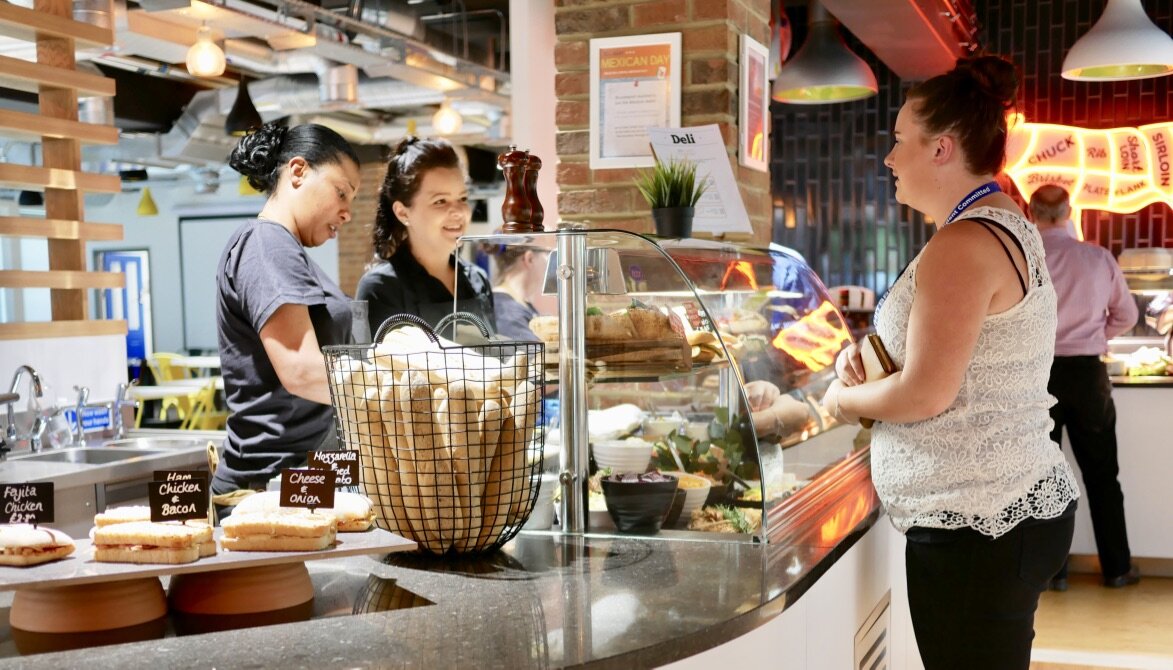
Ruston Toms, founding director at Blue Apple Catering, agreed: “It’s quite an onerous task to make lots of applications to different local authorities. I think the contract caterers that I know have only made applications where their head office is. Ours is in Wokingham, so we’ve applied there, with no result so far.”
He added: “Because contract caterers are, for the most part, operating behind closed doors on premises that don’t have a rateable value, we’ve fallen through the cracks. The councils don’t get contract catering. I’m sure Wokingham Borough Council have no idea that there is a £20m business employing 400 people based in their town, because we have a fairly modest head office.”
Because contract caterers are, for the most part, operating behind closed doors on premises that don’t have a rateable value, we’ve fallen through the cracks
In the meantime, ongoing fixed costs and accumulating debt alongside persistent lower revenues and low cash reserves will remain a major concern for event and contract caterers.
Government support for event and contract caterers
Contract and event caterers have had fewer opportunities to access government financial support compared to hotels, restaurants, pubs and bars.
Because contract caterers generate their income on clients’ premises, they don’t have a rateable value in most of their sites.
The Additional Restrictions Grant (ARG) is designed to support businesses that have been severely impacted by restrictions; that may or may not be in the business rates system; and that have not received wider grant support.
Local councils have the freedom to determine the eligibility criteria for these grants. So far, very few have paid out the ARG.
UKHospitality is lobbying for contract and event caterers to receive the financial support and grants to which they are entitled.



